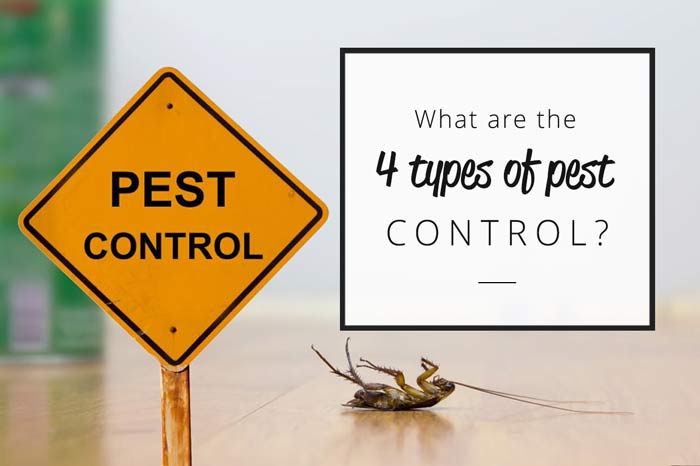The smart Trick of Pest Control That Nobody is Talking About
The smart Trick of Pest Control That Nobody is Talking About
Blog Article
The 25-Second Trick For Pest Control
Table of ContentsWhat Does Pest Control Mean?Our Pest Control StatementsWhat Does Pest Control Do?Fascination About Pest ControlPest Control Can Be Fun For Anyone
Limitations of Chemical Administration Be able to evaluate parasite issues, identify if monitoring is needed, and make appropriate referrals utilizing IPM strategies. Be familiar with various techniques of pest management - their advantages and restrictions.This chapter reviews (IPM), a technique that uses expertise about parasites and their, practices, nonchemical approaches, and pesticides to handle parasite issues. Added information regarding IPM for specific plants is included in phases that concentrate on those plants. Nonchemical bug control measures are worried in phase 17, "Organic Gardening." Handling birds and creatures is covered in phase 20, "Wildlife." Handling in the backyard and garden is covered in chapter 6, "Weeds." Pests in a garden or landscape might consist of pests and mites, weeds,, mammals, and birds.
Many individuals rush to draw, hoe, or spray every weed they see. Pests and weeds, however, contribute in the. After planting a garden or establishing a yard, the all-natural procedure of plant sequence starts to improve and nonnative plants. A weed expanding in a grass represents the first stage in a sequence of events that, if allowed to proceed, can eventually result in a forest.
What we call "pests" are part of an all-natural system at job. Only human beings take into consideration particular varieties parasites when they happen where they are not wanted.
What Does Pest Control Mean?
Bugs vulnerable to a pesticide were quickly eliminated, leaving resistant ones to reproduce and increase. It came to be clear that chemicals alone would not address all insect problems. Instead, overuse of pesticides created the growth of immune insects. Scientists started to develop a new method to pest control. This brand-new method was called incorporated insect monitoring (IPM).
An IPM strategy enables some degree of insects in the atmosphere. Insects are a lot less likely to make it through a program that makes use of several techniques of reducing their populations. Integrated insect administration was initial recommended by entomologists due to the fact that insects were the first group of insects to show tough to take care of with chemicals alone.
A limit is the factor at which action ought to be taken. IPM has extended beyond pests to monitoring of all pest populaces: weeds, illness organisms, and mammals.
What Does Pest Control Mean?
Monitoring see page rather than removal of pests is the goal. An IPM strategy starts with a careful evaluation of each parasite invasion.
Clover growing in a grass may be deemed an undesirable weed, however as a legume it is synthesizing nitrogen for the dirt and the flowers are giving nectar to honey and various other. Tolerance for some weeds might become part of an IPM strategy. may be consuming the leaves of a plant, however when they are identified as the larvae of Eastern tiger swallowtail butterflies, their damage might be tolerated so we can take pleasure in the beautiful butterfly.

The second essential tool in bug monitoring is early treatment. Existing and observant in the garden makes sure very early discovery. Reacting to issues quickly, before they have time to increase, requires a much less significant intervention. The third essential device is recordkeeping; tracking what occurs in the yard allows a useful content garden enthusiast to recognize patterns and make notified decisions.
Not known Details About Pest Control
Many safe, sensible, nonchemical methods of plant defense and pest management might lower or eliminate the requirement to spray. Various other techniques are most useful when used with pesticides. To execute monitoring techniques correctly and to decrease losses, garden enthusiasts ought to know the kinds of pests that strike plants and understand pest biology.

Carrying out a soil test and applying just the recommended amount of fertilizer and lime optimizes the advantage to the plant while lessening problems connected to extreme use fertilizer - Pest Control. Treatment the soil with several inches of compost shields the plant in a number of ways: lowering soil water loss to evaporation, lessening weed competitors, providing nutrients, and creating an appropriate atmosphere for earthworms and microbes that maintain the dirt loosened for origins and damage down natural material to release nutrients
If mulch touches the trunk, it can develop a means for voles, microorganisms, and fungis to strike the plant. Do not make use of manure or garden compost that has not completely disintegrated as a top dressing because it can encourage undesirable parasites. Study recommends that tilling the dirt is damaging to dirt structure.
How Pest Control can Save You Time, Stress, and Money.
If tilling is deemed needed, consider doing it in the autumn when the life cycles of several insects brings them near the surface area. go to the website At the surface, bugs come to be subjected to the climate as well as birds and other natural adversaries.
Report this page